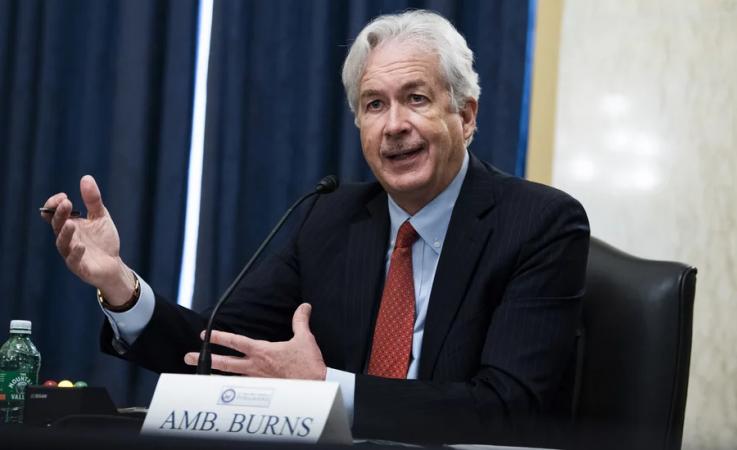Central Intelligence Agency (CIA) Director, William Burns, on Sunday claimed that Russia's struggle to seize and maintain territory in Ukraine has likely fueled doubts in the mind of Chinese leader Xi Jinping about the success of China's military invasion of Taiwan later this decade.
Talking to news channel CBS, Burns said that the US continues to take the threat of a Chinese invasion of Taiwan seriously, and the risks of conflict would likely grow into the decade and beyond. U.S. intelligence and defense officials believe Xi wants to be ready to invade Taiwan by 2027, if not sooner.
However, Burns also pointed out that China's goal of invading Taiwan by 2027 is not set in stone, and there are doubts within the Chinese military leadership about whether they could accomplish the invasion. Burns believes that China's leadership has been influenced by Russia's experience in Ukraine, which has reinforced some of those doubts. Furthermore, U.S. and European assistance for Ukraine since Russia's invasion could also be factoring into China's calculus about an invasion of Taiwan by demonstrating the West's collective resolve.
“We do know, as has been made public, that President Xi has instructed the PLA, the Chinese military leadership, to be ready by 2027 to invade Taiwan, but that doesn't mean that he's decided to invade in 2027 or any other year as well,” Burns told CBS.
“I think our judgment at least is that President Xi and his military leadership have doubts today about whether they could accomplish that invasion,” he added.
Taiwan is just one of the flashpoints in U.S.-China relations, which have deteriorated further this month after a suspected Chinese spy balloon traversed North America for more than a week before being shot down by the Air Force. The US has also accused China of considering providing lethal aid to Russia.
In response to the rising threat from China, the US is significantly increasing the number of troops deployed to Taiwan. The current number of troops will be more than quadrupled to bolster a training program for the island's military, according to U.S. officials. The US plans to deploy between 100 and 200 troops to the island in the coming months, up from roughly 30 there a year ago.
Taiwan has been a long-running flashpoint in U.S.-China relations, and tensions have been rising since then-House Speaker Nancy Pelosi's visit to the island last summer. China responded by sending warplanes and warships and firing missiles around the island in exercises meant to register protest and display capabilities it might potentially use to stage a temporary blockade. Beijing regards Taiwan as a part of China and has vowed to take control of the island, by force if necessary, while Washington is committed under US law to assist Taiwan in maintaining its defenses.


















